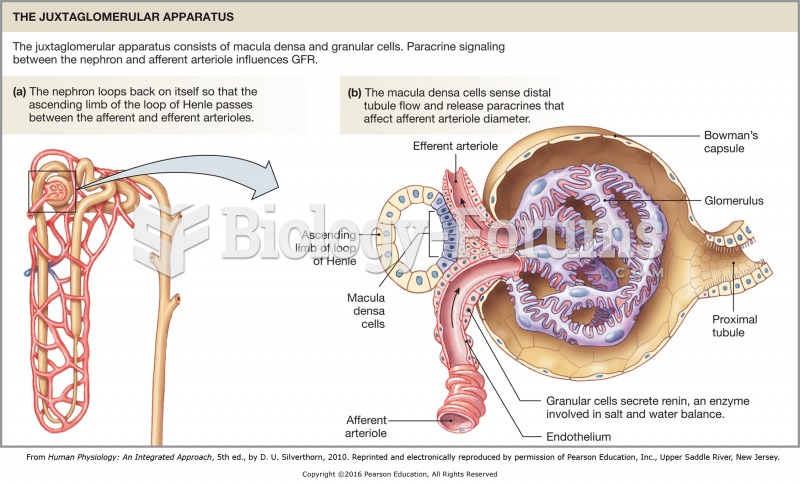|
|
|
Cutaneous mucormycosis is a rare fungal infection that has been fatal in at least 29% of cases, and in as many as 83% of cases, depending on the patient's health prior to infection. It has occurred often after natural disasters such as tornados, and early treatment is essential.
Only 12 hours after an egg cell is fertilized by a sperm cell, the egg cell starts to divide. As it continues to divide, it moves along the fallopian tube toward the uterus at about 1 inch per day.
Autoimmune diseases occur when the immune system destroys its own healthy tissues. When this occurs, white blood cells cannot distinguish between pathogens and normal cells.
The B-complex vitamins and vitamin C are not stored in the body and must be replaced each day.
As many as 20% of Americans have been infected by the fungus known as Histoplasmosis. While most people are asymptomatic or only have slight symptoms, infection can progress to a rapid and potentially fatal superinfection.
 The tolerance of male lions towards the cubs varies. They are, however, generally more likely to sha
The tolerance of male lions towards the cubs varies. They are, however, generally more likely to sha
 The macula densa and the juxtaglomerular (JG) cells. Osmoreceptors in the macula densa sense low ...
The macula densa and the juxtaglomerular (JG) cells. Osmoreceptors in the macula densa sense low ...





